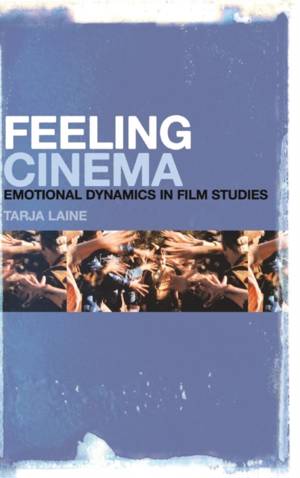
- Afhalen na 1 uur in een winkel met voorraad
- Gratis thuislevering in België vanaf € 30
- Ruim aanbod met 7 miljoen producten
- Afhalen na 1 uur in een winkel met voorraad
- Gratis thuislevering in België vanaf € 30
- Ruim aanbod met 7 miljoen producten
Zoeken
€ 198,95
+ 397 punten
Uitvoering
Omschrijving
There is an upsurge of interest in contemporary film theory towards cinematic emotions. Tarja Laine's innovative study proposes a methodology for interpreting affective encounters with films, not as objectively readable texts, but as emotionally salient events. Laine argues convincingly that film is not an immutable system of representation that is meant for (one-way) communication, but an active, dynamic participant in the becoming of the cinematic experience.
Through a range of chapters that include Horror, Hope, Shame and Love - and through close readings of films such as The Shining, American Beauty and Eternal Sunshine of the Spotless Mind, Laine demonstrates that cinematic emotions are more than mere indicators of the properties of their objects. They are processes that are intentional in a phenomenological sense, supporting the continuous, shifting, and reciprocal exchange between the film's world and the spectator's world. Grounded in continental philosophy, this provocative book explores the affective dynamics of cinema as an interchange between the film and the spectator in a manner that transcends traditional generic patterns.Specificaties
Betrokkenen
- Auteur(s):
- Uitgeverij:
Inhoud
- Aantal bladzijden:
- 192
- Taal:
- Engels
Eigenschappen
- Productcode (EAN):
- 9781441168153
- Verschijningsdatum:
- 29/09/2011
- Uitvoering:
- Hardcover
- Formaat:
- Genaaid
- Afmetingen:
- 155 mm x 231 mm
- Gewicht:
- 408 g

Alleen bij Standaard Boekhandel
+ 397 punten op je klantenkaart van Standaard Boekhandel
Beoordelingen
We publiceren alleen reviews die voldoen aan de voorwaarden voor reviews. Bekijk onze voorwaarden voor reviews.











